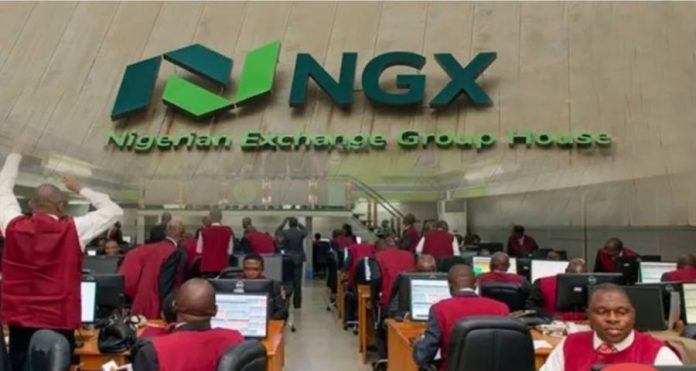BY FESTUS OKOROMADU
As the year gradually winds down, paving the way for the forthcoming earnings reporting and dividend season in Q1 2024, the equities market exhibited a nuanced trend in the first trading week of December.
Investors treaded cautiously across sectors, diligently seeking fundamentally strong yet attractively priced stocks.
The index’s retracement to its consolidation range, coupled with the formation of a reversal pattern, hinted at a potential bearish sentiment following a recent correction.
Consequently, the week ended on a positive note, with investors and fund managers engaging in year end seasonality activities and strategic portfolio rebalancing.
The benchmark index demonstrated resilience, posting a 0.17 percent week-on-week advancement and reaching a new high of 71,808.64 points, despite instances of profit-taking.
The week concluded with the index settling at 71,541.74 points on the backdrop of reactions and sentiments regarding the ongoing stress test of the Capital Adequacy Ratio of Nigerian banks with international operations, which triggered sell-offs on Thursday while market gains in three of the five sessions this week.
The market capitalization experienced a reversal in its trajectory, registering a 0.17 percent week-on-week upswing to reach N39.15 trillion.
This reversal was attributed to strategic moves by investors in the banking and consumer goods sectors, setting the stage for the anticipated Santa Claus rally.
The year-to-date return for the index reached an impressive 39.59 percent.
Despite the overall mildly positive market performance, sectoral dynamics revealed a mixed bag.
The Industrial, Insurance, and Oil & Gas indexes faced minor setbacks, witnessing declines of 3.03 percent, 1.44 percent, and 0.58 percent, respectively.
Pressured sell-offs across counters such as OANDO, MRS, JULI, BUACEMENT, MANSARD, and MBENEFIT contributed to these declines.
Conversely, the Banking and Consumer Goods indexes recorded gains of 6.08 percent and 0.21 percent, respectively.
This upward trajectory was fuelled by notable price increases in ETI, ACCESSCORP, FBNH, JAIZBANK, PZ, NNFM, and INTBREW.
In terms of trading activity, the week witnessed a varied outing, marked by a 4.74 percent decrease in total traded volume to 2.42 billion units.
The number of trades followed suit, declining by 3.97 percent to 34,704. However, the weekly traded value experienced an uptick of 16.63 percent week-on-week, reaching N45.07 billion.
Top gaining stocks for the week included MULTIVERSE, THOMAS WY, ETI, NSLTECH, and ACCESSCORP, each securing impressive gains of 57 percent, 33 percent, 21 percent, 17 percent, and 12 percent, respectively, from their previous week’s close.
Conversely, stocks such as OANDO (12 percent), MRS (10 percent), UNITYBNK (9 percent), and BUACEMENT (7 percent) faced declines in their share prices on a week-on-week basis.
Meanwhile, market analysts say they expect further profit-taking activities and potential market corrections following the recent surge in this new week.
“Investors are likely to continue rebalancing their portfolios in anticipation of the reporting and dividend earnings season.
Additionally, caution may prevail in the market as stakeholders await the planned stress test of the capital adequacy ratio of Nigerian banks with international operations,” says Cowry Assets management Limited researchers.
Researchers from Cowry Assets however insist that the cautious sentiment is underscored by prevailing global risks, including high inflation and forex volatility, prompting investors to tread cautiously as they await the anticipated Santa Claus rally.
“Amidst all these, we maintain our advice to investors on taking positions in stocks with sound fundamentals and whose earnings yield and earnings per share support higher payout ratio,” researchers from Cowry Assets said.

